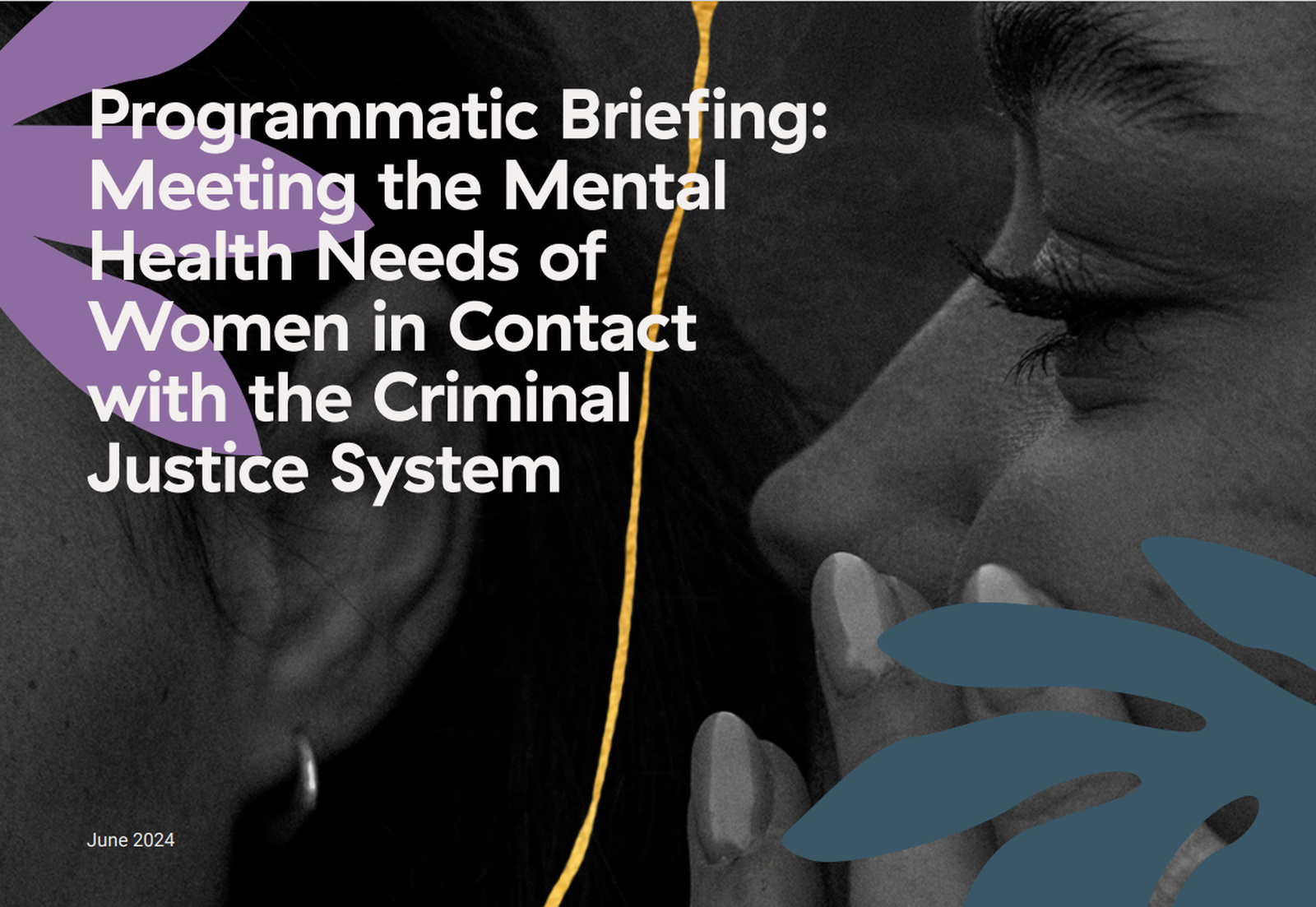
Programmatic briefing: Meeting the Mental Health Needs of Women in Contact with the Criminal Justice System
This briefing gives an overview of Women in Prison’s ‘Bluebird’ and ‘Healthy Foundations’ services, which worked with women with varying mental health needs or who had been diagnosed with a personality disorder, who were in contact with the criminal justice system.
Both services evolved out of our history of developing, testing and modifying ways of working with women in the justice system. Learning brought together on the two services in this briefing has gone on to inform how we meet women’s mental health needs through our broader programmes. The key findings presented in this briefing were shared at a roundtable event in May 2024 with experts, including those with lived experience, and professionals working across the justice and health sectors, to generate shared learning and collaboration.

When I hear the words ‘mental health’ it makes me think about being trapped inside my head, travelling around in the labyrinth of thought until I am lost to all sane reasoning. Travelling ever, yet reaching nowhere. In the end of a prisoner of my mind, still and standing just where I started.
— Natalie, a woman in contact with the criminal justice systemThis briefing draws on two evaluations. The first, explores the effectiveness of the Enhanced Engagement Relational Support Service (EERSS) of which our Bluebird service was a part.
The second evaluation is of Healthy Foundations, which preceded Bluebird and shared many of its characteristics. This briefing aims to draw out key themes and lessons to inform the work of Women in Prison and our partners.
We have included anonymised case studies that highlight the role of our frontline workers and the experiences of women using our services. We are grateful to them for allowing us to use their stories. We would like to thank Rachel O’Brien for her work on this briefing.
We would also like to thank Eva Fraser for the photographs included in this briefing, which were inspired by testimonials from women about their mental health, and by the Japanese art of ‘Kintsugi’, putting broken pieces of pottery back together with gold.